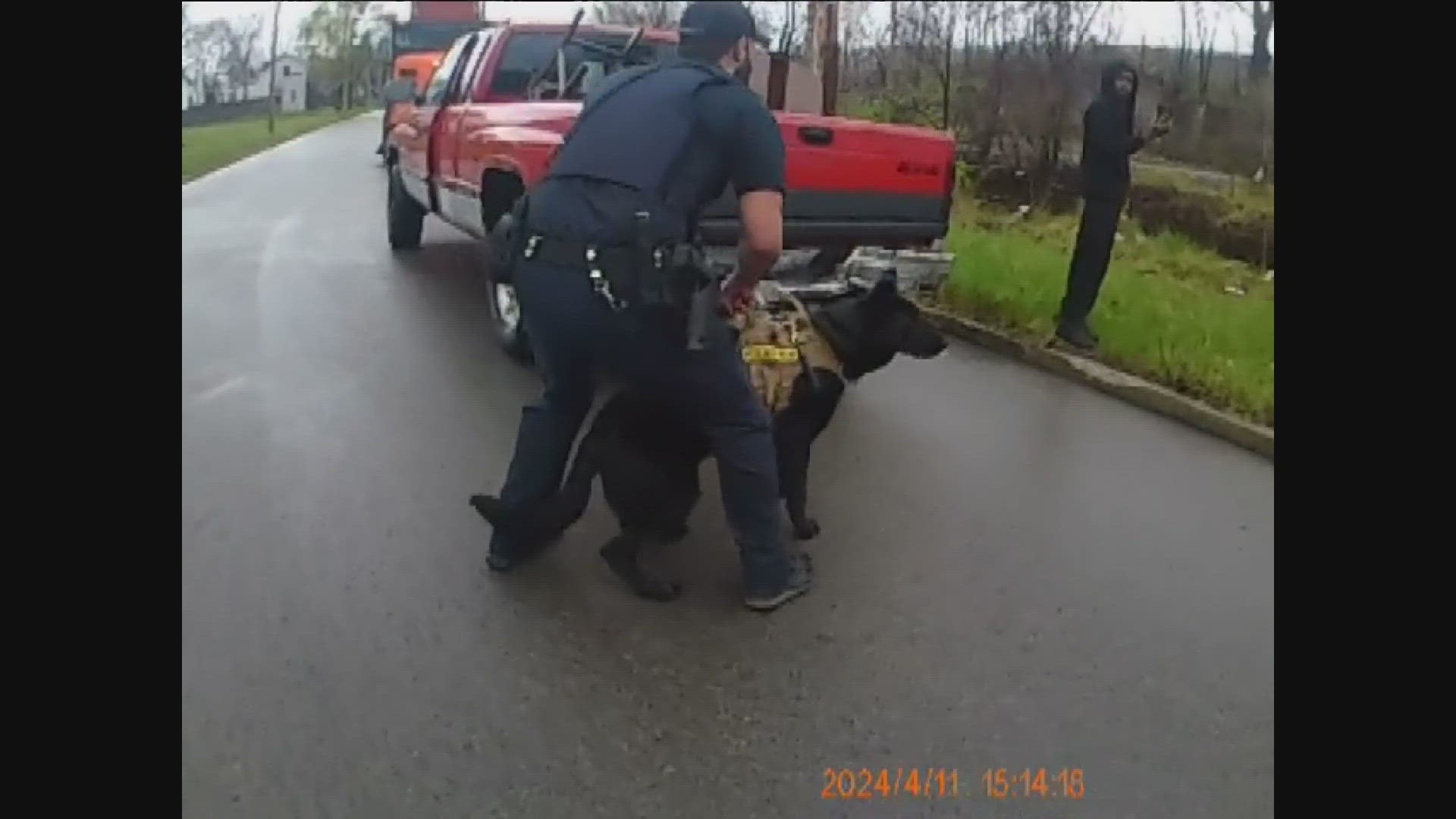TOLEDO, Ohio — The Toledo chapter of the NAACP is calling for accountability from the Toledo Police Department after an incident earlier this month where a K-9 released by officers during a traffic stop bit a Black man.
Chapter members in a press conference Friday morning at the NAACP's local headquarters said the use of the K-9 — which bit Brandon Upchurch after police pulled him over under the false belief his truck was stolen — was excessive and reminiscent of past instances in America of police releasing dogs onto Black people during protests.
"We refuse to go back to the 1960s," said Darlene Sweeney-Newbern, who helps people seek legal redress on behalf of the NAACP Toledo. "We are demanding equality as it relates to police stops."
RELATED: TPD conducting internal investigation into arrest of man whose license plates were misread by reader
Officers pulled Upchurch and his passenger, Fredrick Wilson III, over in central Toledo on the afternoon of April 11 after being alerted to a possible stolen vehicle by a license plate reader. TPD says in a report that Upchurch refused officers' verbal commands to exit his vehicle.
Upchurch, who was adamant that his truck was not stolen, eventually stepped out of his vehicle but refused further verbal commands to get on the ground or have a K-9 released on him, police claim.
Police eventually released the K-9, which took Upchurch to the ground. He and Wilson were then arrested.
Upchurch's vehicle was later confirmed to not be stolen and its license plate incorrectly transcribed by the reader. TPD is conducting an internal investigation into the incident. But NAACP Toledo President Willie Perryman said the damage was already done.
Perryman argued at the press conference that the deployment of the K-9 was excessive force and police failed to communicate with Upchurch why they pulled him over.
Biases involving race, status or authority are issues deeply rooted in instances of police stops involving people of color and can affect whether an incident escalates or de-escalates, Perryman said.
Le Roy Williams, a current community elder and former NAACP Toledo president, agreed with Perryman.
"There is an undercurrent of a lack of cultural competency among our young officers that has to be addressed," he said. "The elected officials that represent this city and this community, you don't get a pass either."
Reggie Williams, executive director of the Frederick Douglass Center, said positive change is necessary.
"We don't want to go into the summer having more escalation of things that will not allow us to trust our TPD," he said.
Each of the leaders stressed their understanding of why officers would use extra caution while pulling someone over. However, Perryman said there is a limit.
"Sometimes I believe just the mere fact of the uniform, just the mere fact of the weapon, just the mere fact of their appearance, they're already at an advantage," Perryman said. "Therefore, it does not give them permission or the license to overreact when it comes to service calls."
Perryman said he has been in contact with Toledo Police Chief Mike Troendle throughout the aftermath of the incident and others.
TPD said due to collective bargaining agreements, the department cannot provide information beyond the fact that the incident is under internal investigation.

